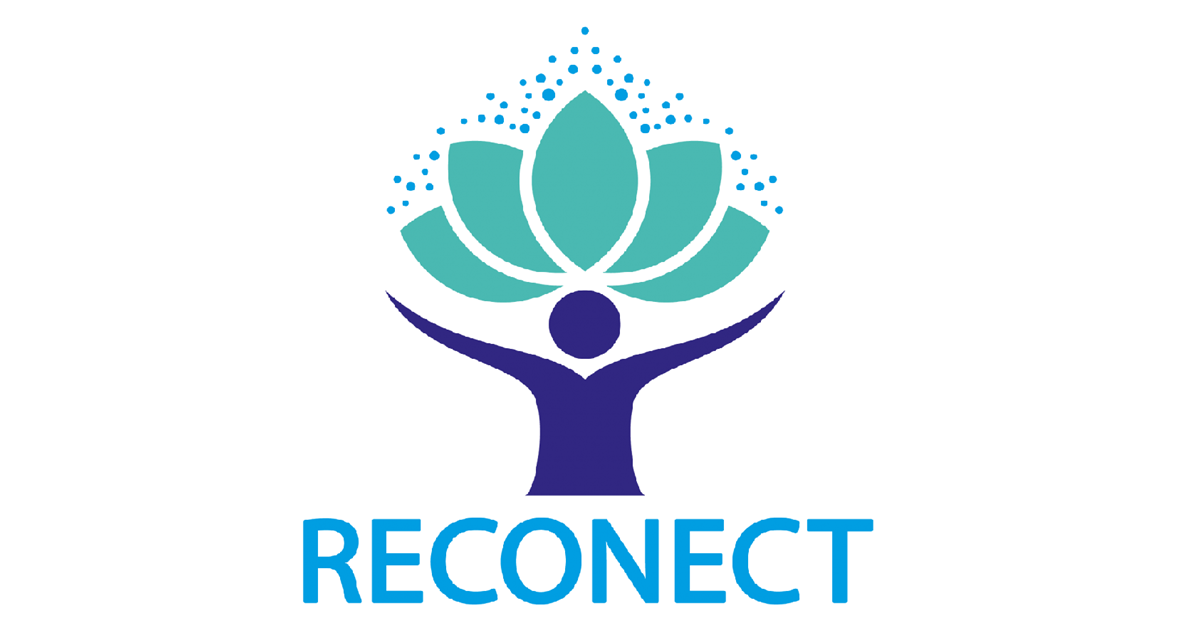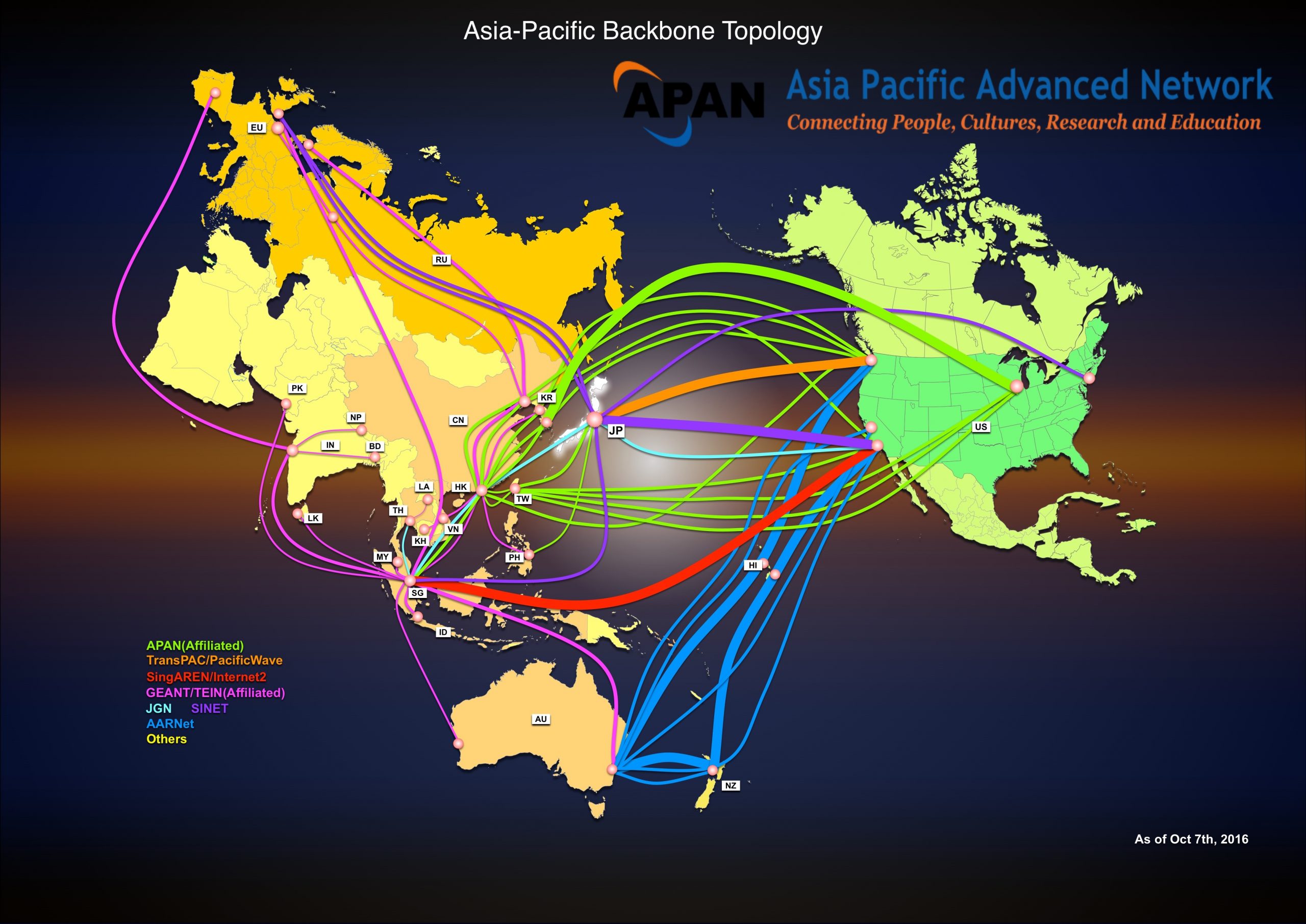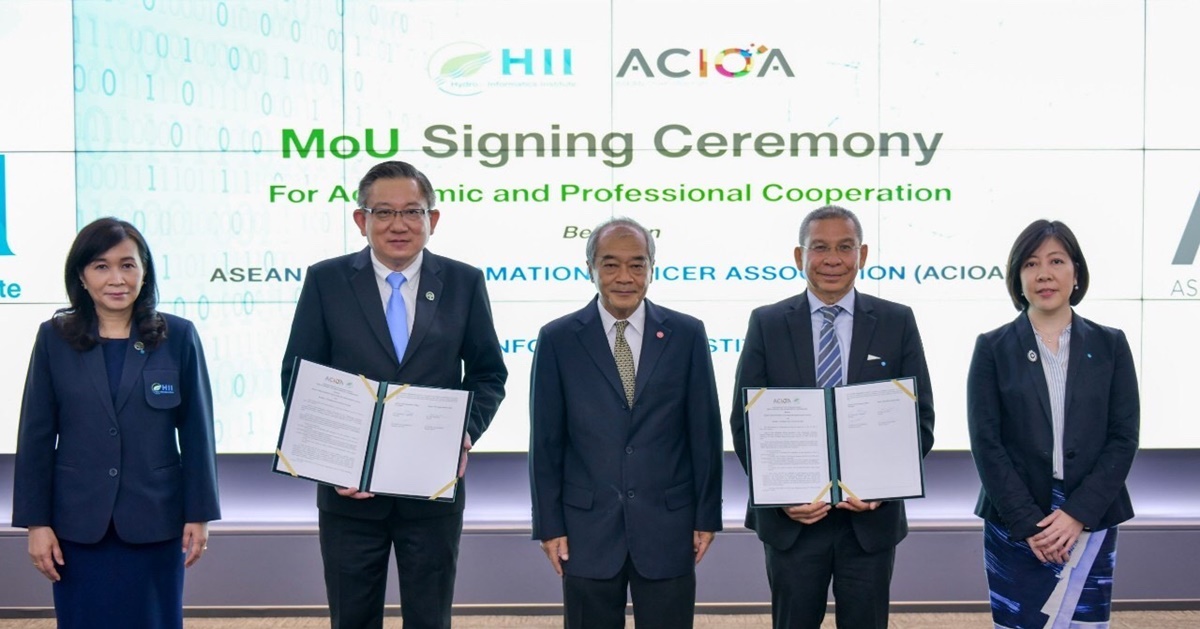
RECONECT (Regenarating ECOsystems with Nature-based solutions for hydro-meteorological risk rEduCTion)
13/05/2020
Regenarating ECOsystems with Nature-based solutions for hydro-meteorological risk rEduCTion or ‘RECONECT’, funding by the European Commission under the “HORIZON 2020 Research and Innovation Program” which is the most funded project for research and innovation program in the European Union
RECONECT was responsible by IHE Delf, Netherlands, who is the major responsible person of this project. The purpose is to focus on the hydro-meteorological risk reduction with Nature-Based Solutions (NBS) which demonstrates the balance of People-Water-Nature through the participation and the usability of appropriate technology or innovation (Gray-Green-Blue solutions). Besides, the project was conducted on the prototype site in Europe (Demonstrators) by adapting the prototypes under the NBS solutions framework from other networks around the world (International Collaborators). This model is expected to extend (Scaling) to both in Europe and worldwide by applying the NBS solutions appropriately.
RECONECT was officially began on the 1st of August 2018 with total duration of 60 months. The General Assembly Meeting will be organized in various countries every 6 months to monitor the progress and visit the NBS prototype sites of each country. HII contribute in the RECONECT project in 2 major Work Packages:
1) Work Package 3: “Co-evaluation and Validation“ – HII participated in the ICT platform working group to develop a tracking system of evaluation on the NBS prototype site in RECONECT networks by using our expertise of the Data Visualization and the Mobile Application.
2) Work Package 4: “Overcoming barriers, upscaling and synergies with collaborators” – HII became a part of International Collaborator to present a prototype site of Community Water Management in the Rangsit community, Pathum Thani province, where 3 canals (Klong 8-9-10) can be revived to support the diversion of water from the Raphiphat Canal, the lower Chao Phraya River Basin.
Since 2018, HII has continued many activities under RECONECT project e.g.
1st General Assembly Meeting in Portofino, Italy
25 – 29 September 2018
HII attended the first RECONECT meeting to identify the first-year plan and seek for the connections of each part (interdependencies). In addition, all participants also visited the San Fruttuoso di Camogli, one of the Demonstrator’s prototype site.

2nd General Assembly Meeting in Zwolle, Netherlands
7 – 11 May 2019
The 2nd project meeting to present the progress and jointly plan for the first round of presentation in September 2019. After the project has been run for a while, the working group agreed that all WPs should work in parallel. Therefore, the communication, integration and combination in each activity will be a major factor in project implementation to achieve its objectives. Furthermore, participants also visited at Veessen-Wapenveld, an emergency spillway of Netherlands (a prototype from Room for the river project).
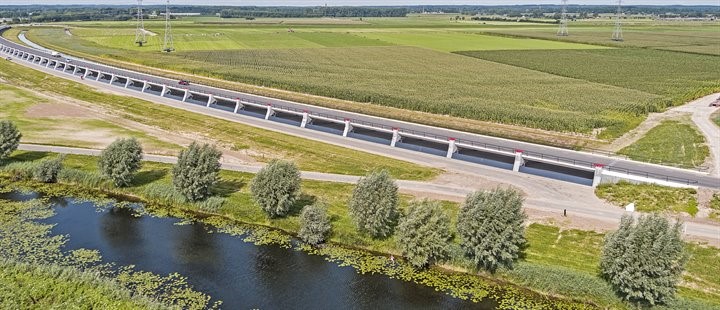
3rd General Assembly Meeting in Nice, France
30 September – 3 October 2019
The 3rd project meeting was to present the work progress and jointly plan the next step of operations. In summary, all of WPs operation should be carried out in parallel. Therefore, the communication, integration and combination in each activity will be a major factor in project implementation to achieve its objectives. Moreover, the working groups also visited 2 Demonstrator sites as:
1) Eco Valley in Nice, a new urban development focusing on the environment, sustainability, innovation and architecture.
2) Var River, the major river of Nice which had formerly experienced drought. Therefore it was changed from a Gray infrastructure to a Green infrastructure (Nature-based solution) that can solve water problems finally.
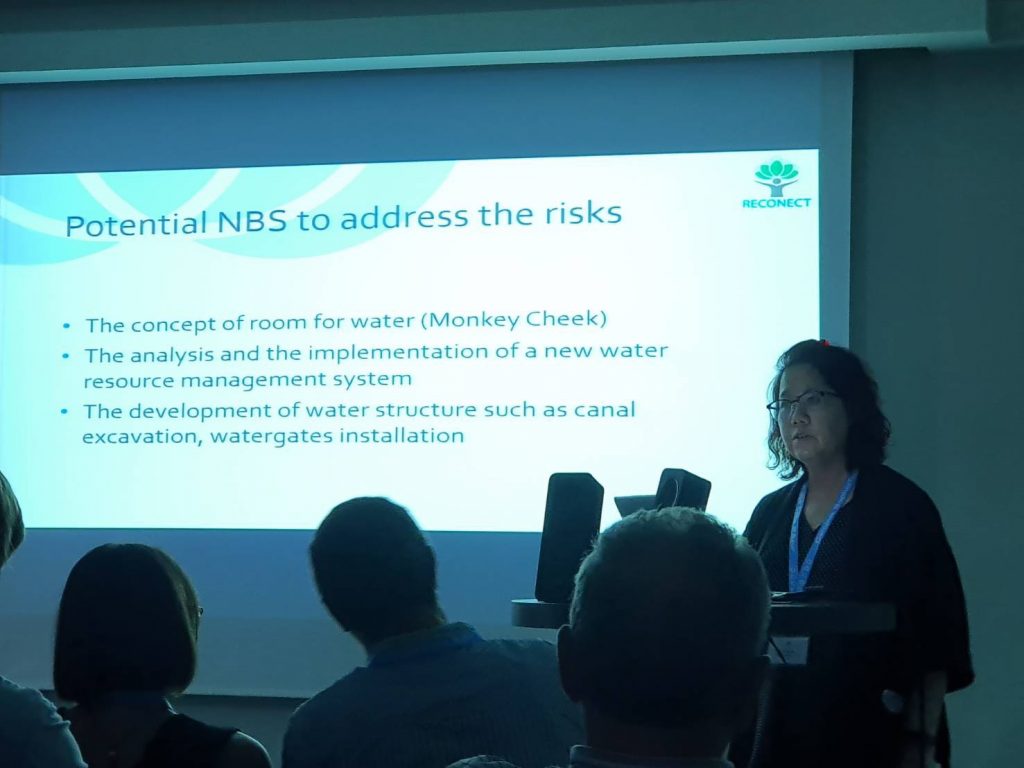
4th General Assembly, Virtual Meeting
19-20 and 26-27 November 2020
Due to the COVID-19 outbreak, the 4th General Assembly must be organized through virtual meetings. This edition focused on exchanging knowledge and opinions of members in each Work Package through online activities e.g. sharing opinions and perspectives on the implementation of activities, obstacles and future operational guidelines.
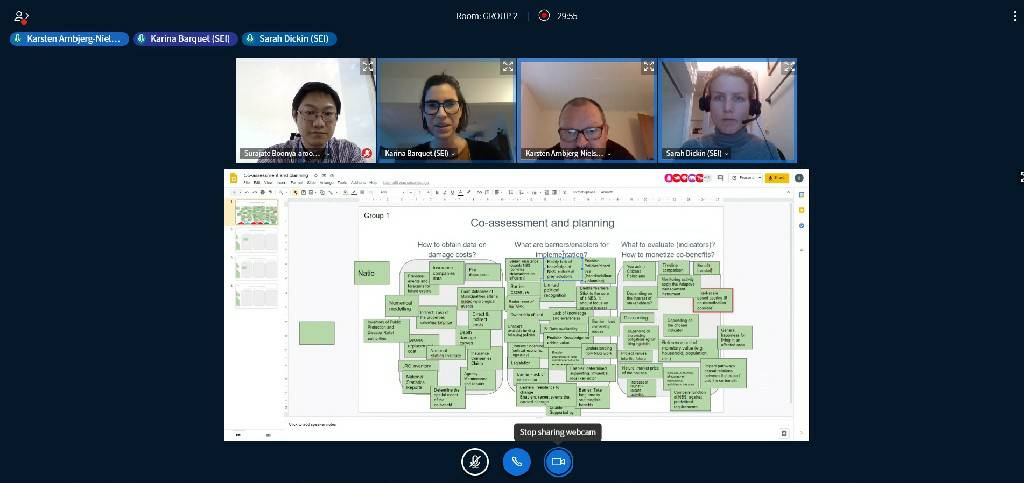
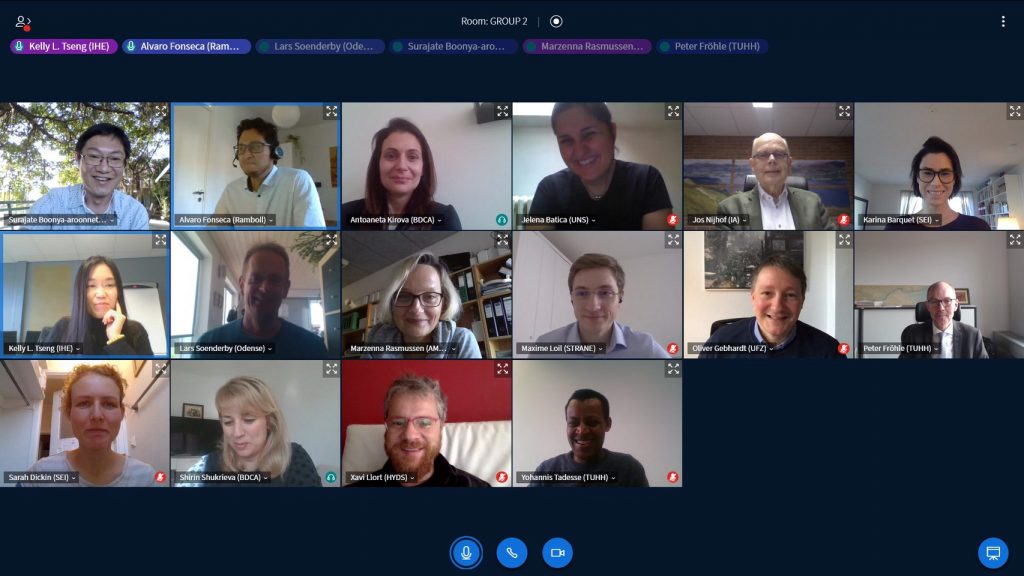
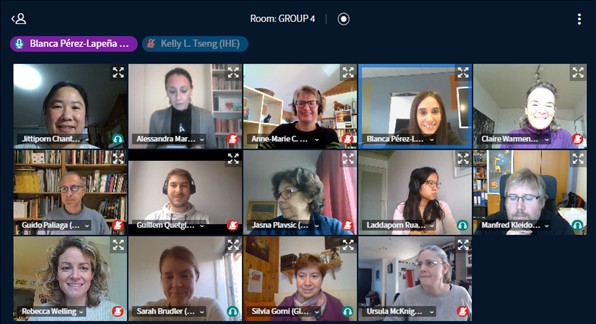
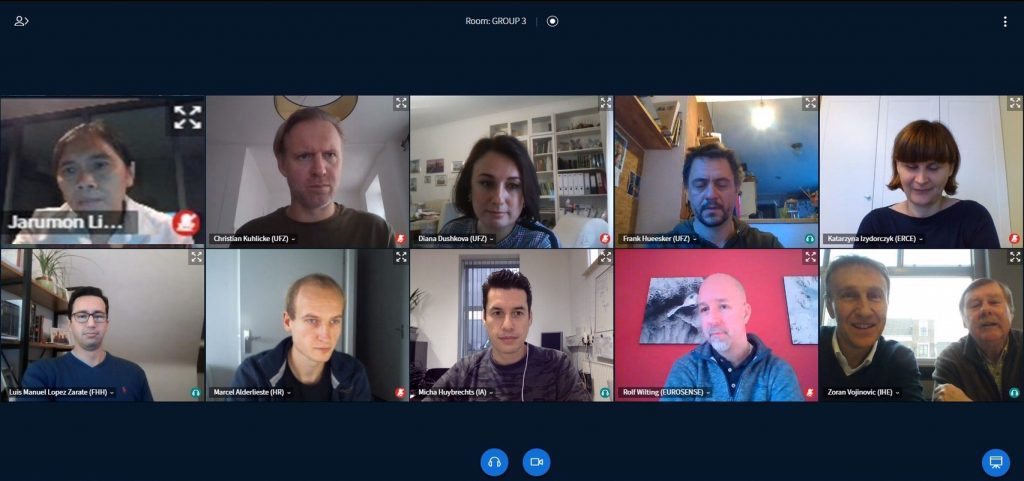
On behalf of Hydro-Informatics Institute or HII, Dr. Surajate Boonya-aroonnet, Director of Hydro Informatics Innovation Division, presented HII’s progress on WP 4 integrating the success of Community Water Resource Management in Rangsit Community that can rehabilitate the system of 8-9-10 canals to support the drainage from Raphiphat canal in the lower Chao Phraya River basin by the Nature Based Solutions (NBS), which is the major concept of this project.
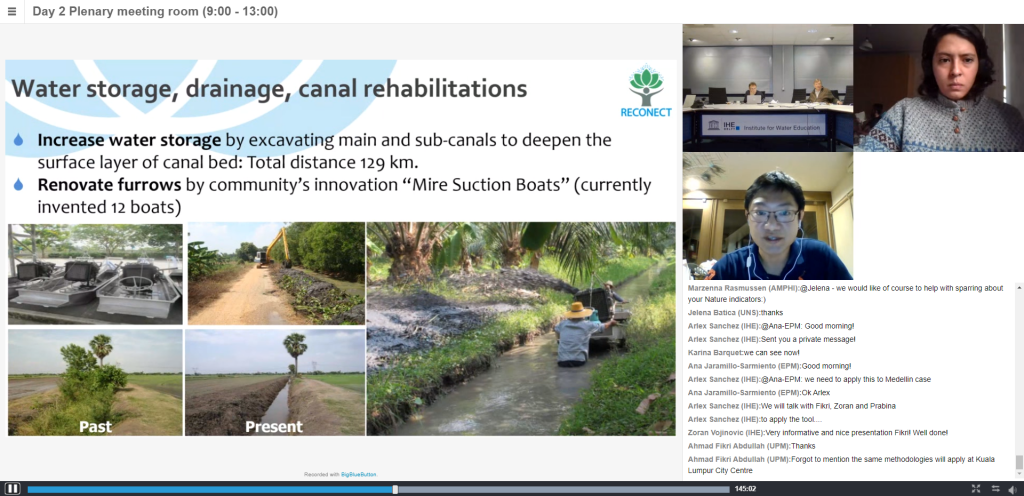
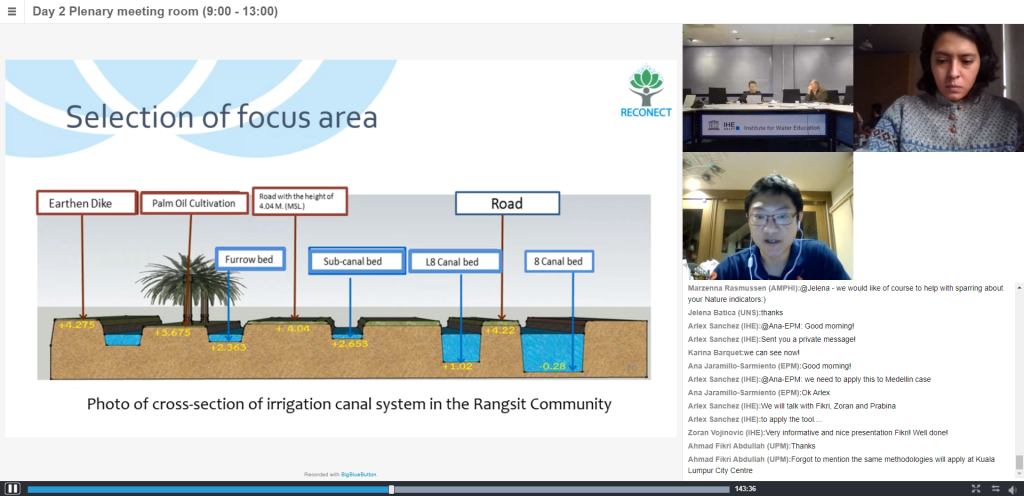
5th General Assembly, Virtual Meeting
10-11 and 16-18 June 2021
Due to the COVID-19 outbreak, the 5th General Assembly must be still organized through virtual meetings. This edition focused on reporting the progress of each Work Package and exchanging knowledge and opinions of its members.



During the meeting, Dr. Surajate Boonya-aroonnet, Director of Hydro Informatics Innovation Division, on behalf of HII, as one of the international collaborators, presented Community Resource Water Management in Rangsit, Chao Phraya basin. This area can restore the canal in Khlong 8-9-10 by NBS measurement which is the goal of the project.
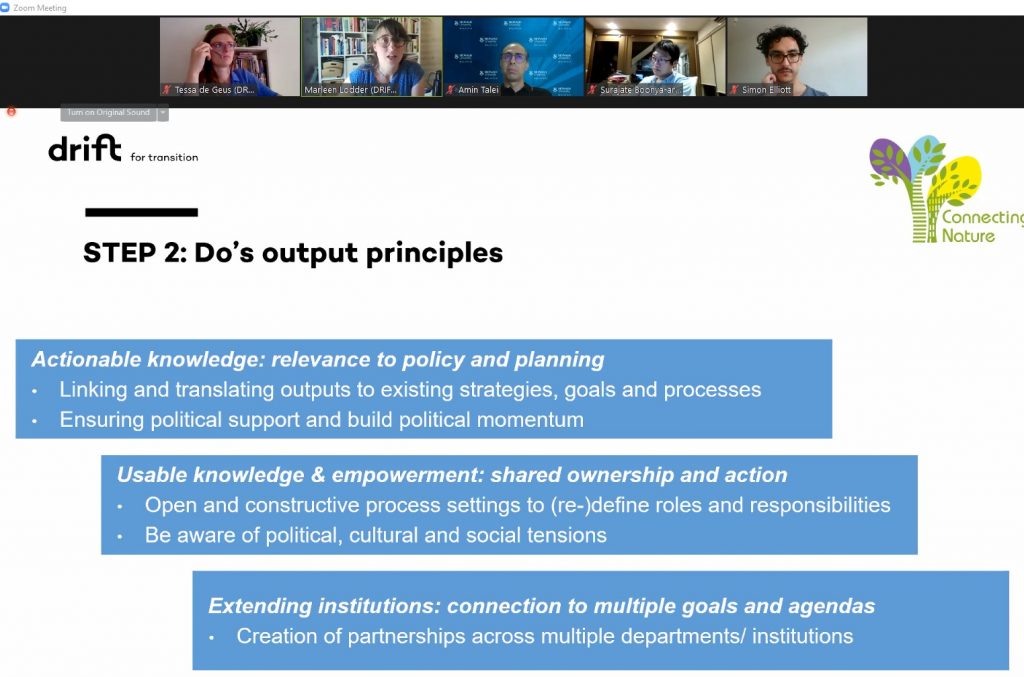
Furthermore, HII team also participated in the “Kick-off working with Co-Production & Reflexive Monitoring” which is an in-depth analysis of the case study area and its operational process, along with matching and sharing views and attitudes with various countries. So that HII can bring such guidelines and results to develop the work of HII in the future.
6th General Assembly, Virtual Meeting
25-26 November and 2-3 December 2021




On 25-26 November and 2-3 December 2021, Hydro-Informatics Institute or HII, led by Ms. Jarumon Limthipdara Director of Technology and Digital Division and Dr. Surajate Boonya-aroonnet, Director of Hydro Informatics Innovation Division and representatives from HII participated in the 6th General Assembly Meeting online as one of the international collaborators to present about Nature Based Solutions for community water management in Rangsit area, Chao Phraya River Basin. Which included the application of Existing hydrodynamic models to monitor crisis from past to present and plan for future actions.
7th General Assembly, Virtual Meeting
23-25 May 2022





On 23-25 May 2022, Hydro-Informatics Institute or HII, led by Dr. Surajate Boonya-aroonnet, Director of Hydro Informatics Innovation Division and representatives from HII participated in the 7th General Assembly Meeting through virtual meeting. As one of the International Collaborators, HII presented information and solutions regarding water management issues in Rangsit Community, ao Phraya River Basin areas. They utilized existing hydrodynamic models to analyze and predict water storage in palm garden ditches and conducted surveys using a Mobile Mapping System (MMS) to collect spatial data. The data collected would be used to address future disaster preparedness.
8th General Assembly, Nijmegen, Netherlands
19-27 November 2022
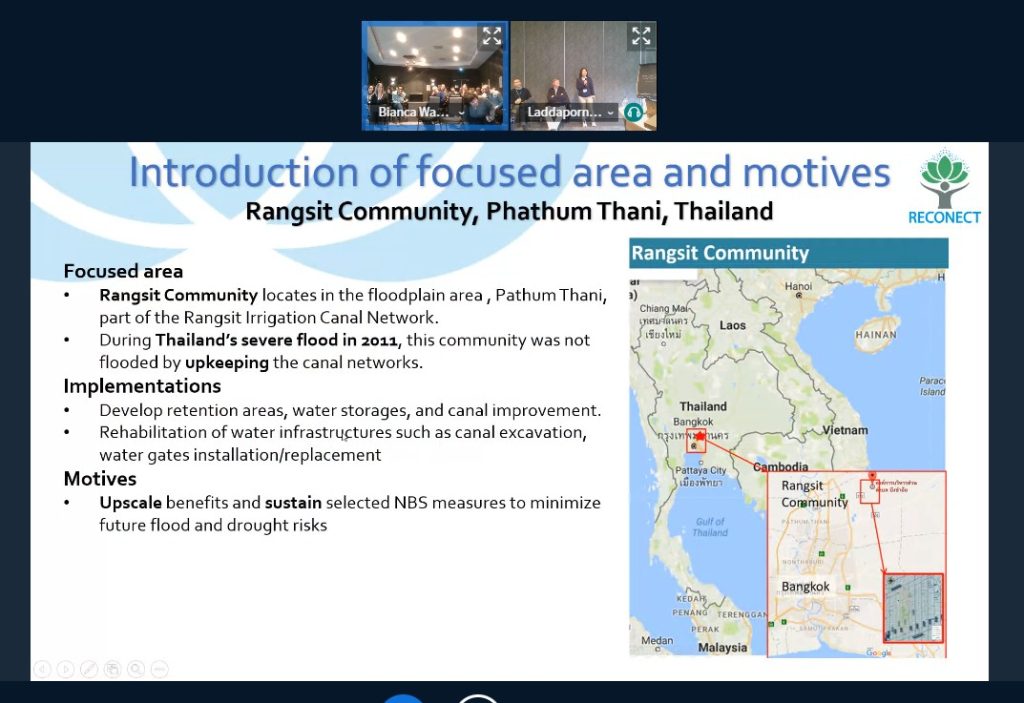
From November 19-27, 2022, Hydro-Informatics Institute or HII, led by Dr. Surajate Boonya-aroonnet, Director of Hydro Informatics Innovation Division and and Ms. Sarawadee Phattharakijkulthorn, representative from the Community Water Resource Management Division, participated in the 8th General Assembly Meeting in Nijmegen, Netherlands for the RECONECT project which supported by the European Union and led by IHE Delft, aims to reduce water and weather-related risks through a balanced approach to nature-based solutions (NBS) that considers people, water, and nature. The project is considered globally significant.
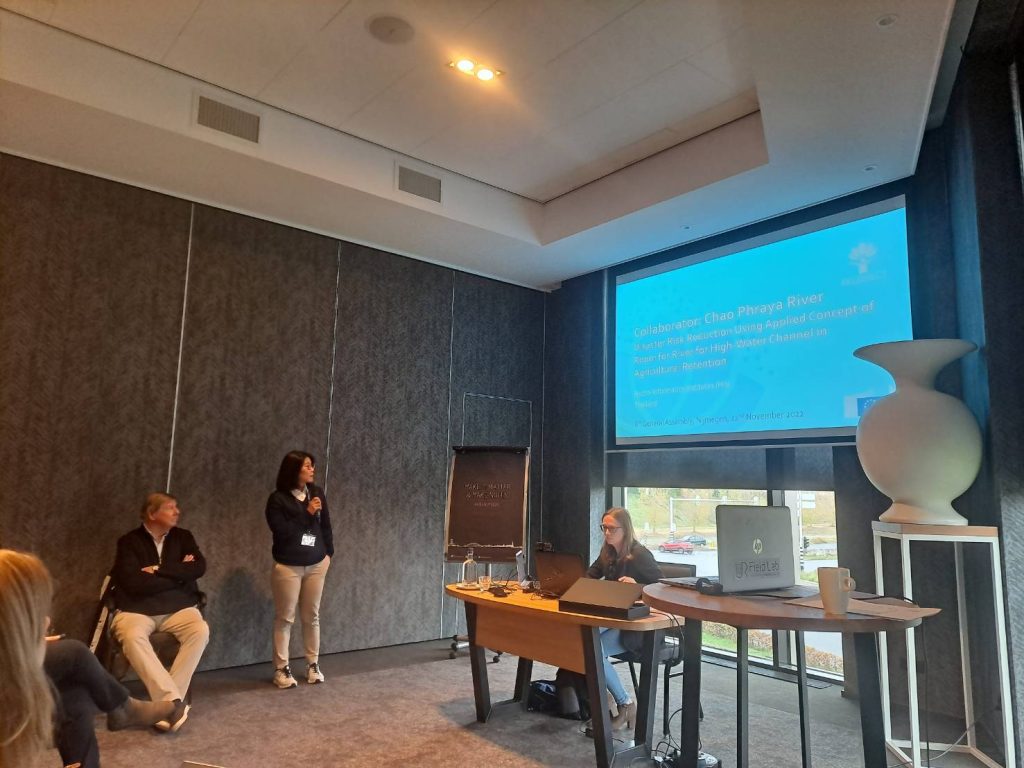
During the meeting, HII presented progress in community water management based on Nature Based Solutions (NBS) in Rangsit Community, which is the case study area. The preparation of the area involved excavating and expanding the internal canal system of canals 8-9-10 to handle various water discharge from the Raphiphat canal, in the lower Chao Phraya River basin, before the rainy season. Additionally, CCTV cameras were installed to monitor water levels in the main canal. The results of the analysis of land use changes and climate extremes in Pathum Thani province were also presented.
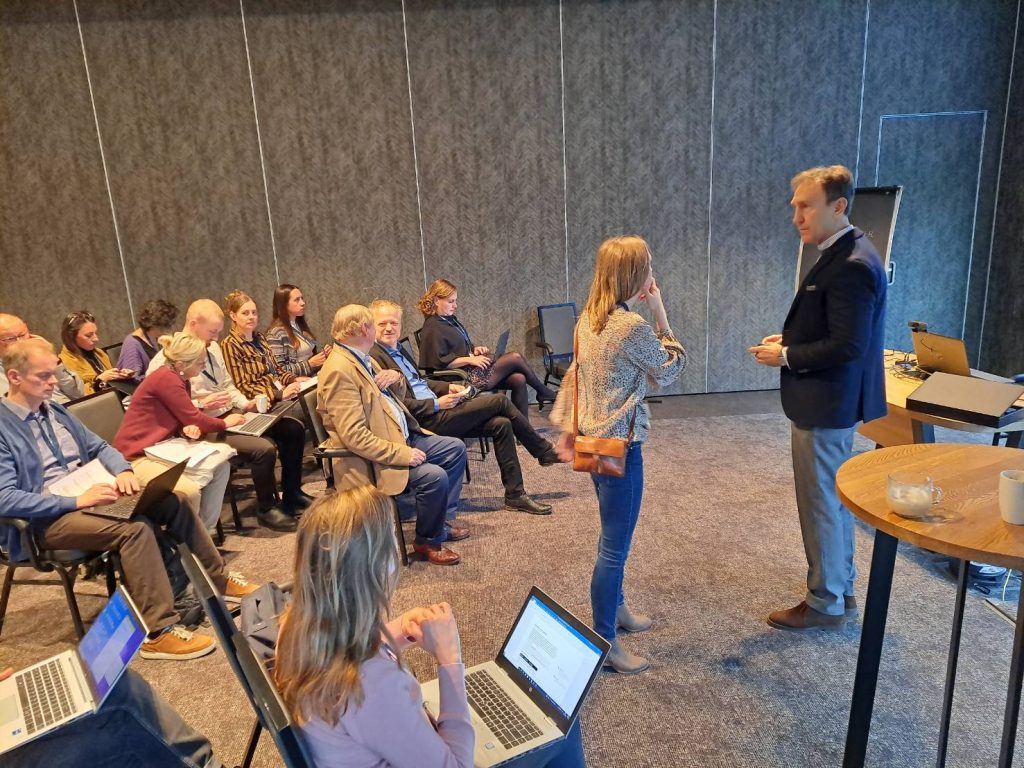
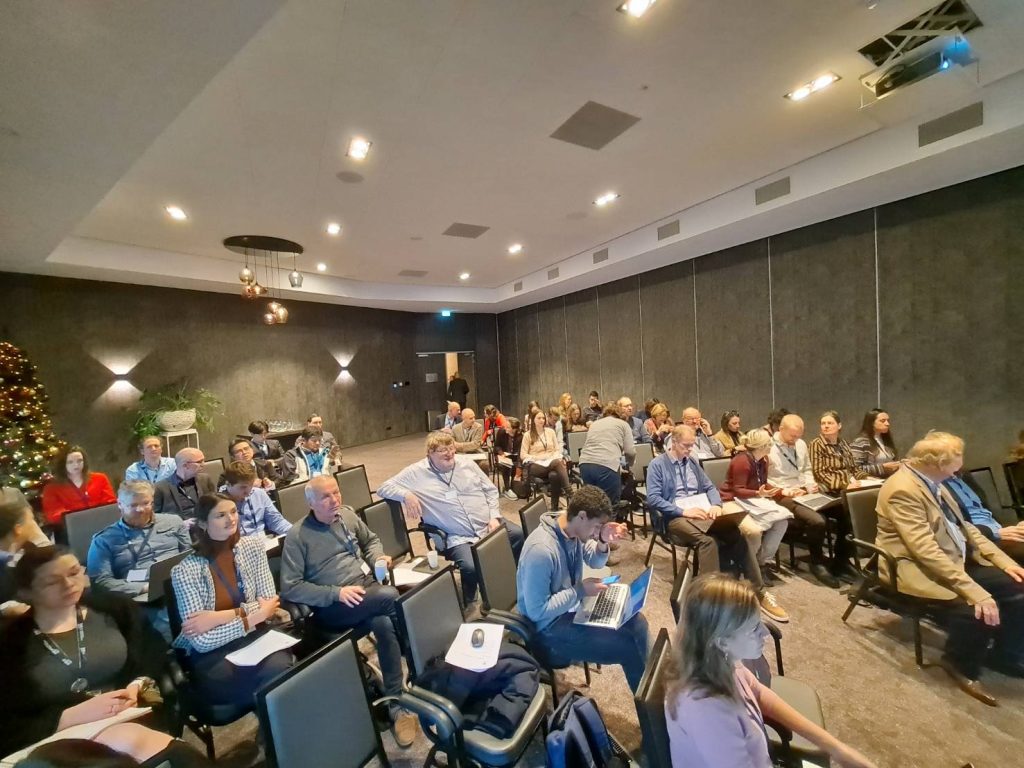
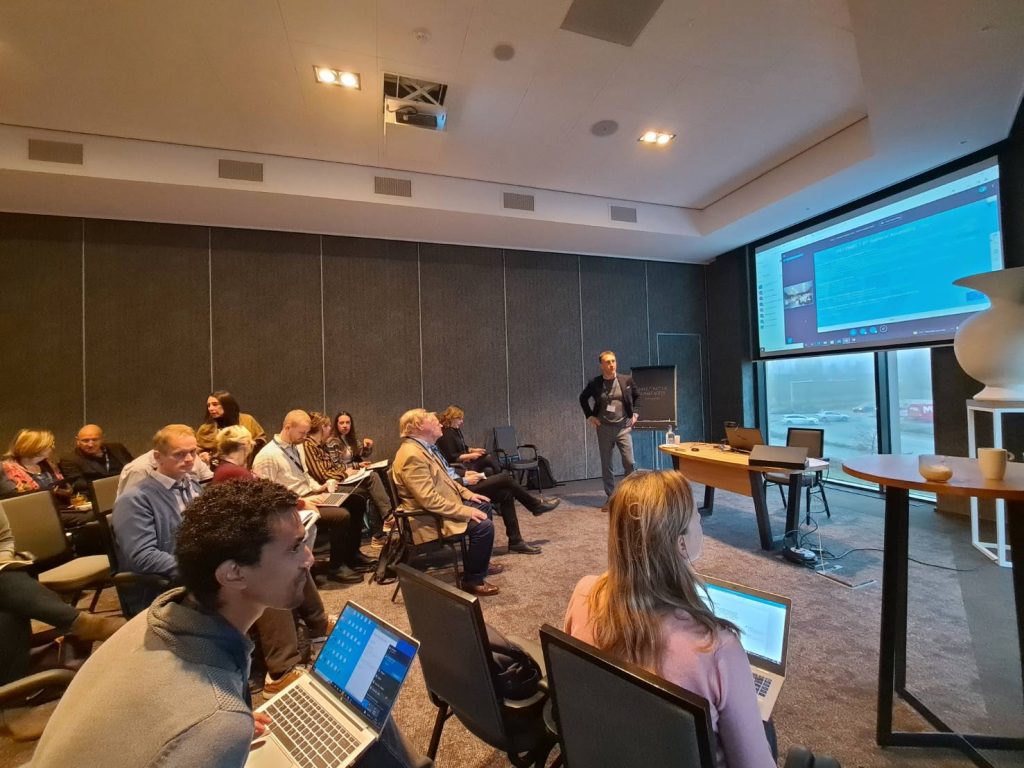
In addition, the participants of the meeting also visited and studied on Room for the River project in the Netherlands as following areas:
-
- Kampen city, located along the Rhine river in the Netherlands, has implemented the Bypass Reevendiep project to address frequent flooding caused by the river’s flow into the Ijssel river, which then leads to the Markermeer lake. Approximately one-ninth of the Waal river’s water flows through the Ijssel river to Kampen. To increase the drainage system, the city has implemented a bypass. Additionally, the project involved a shift from the stakeholder to the shareholder model of involvement in the area.
-
- Munnikenland (Sleeuwijk) and Biesbosch Noordwaard are located at the end of the Waal River, with about 2 from 3 of the Waal River flowing through this area before it reaches the sea. Therefore, it was necessary to increase the waterway network, while still accommodating some agriculture in the area, they need to implement a polder water management system. This area is notable for its high biodiversity, and just one year after the completion of the project and the release of floodwater, a complete and thriving ecosystem has developed. After six years, the area is now home to three breeding pairs of osprey, a protected species.
-
- Zandmotor (Sand Engine) near Den Haag was created in 2011 with the idea of building a coastal defense against rising sea levels and wind currents that could erode the city’s coastline. A massive amount of sand was used to create an artificial sandbank as a buffer between the sea and the city. After a few years, a new and larger beach was formed, leading to a balanced coastline. Nowadays, Zandmotor is a popular recreational area for activities such as kite surfing and other beach activities.
9th General Assembly, Hamburg, Germany
22 – 26 May 2023

From May 22 to 26, 2023, a team from the Hydro-Informatics Institute (HII), led by Dr. Sutat Weesakul, Director HII, along with Ms. Jittiporn Chantarojsiri, Head of International Collaboration Section, and Ms. Narinrat Kalampabut, Community Water Resource Management Specialist, attended the 9th General Assembly Meeting in Hamburg, Germany. The RECONECT project, a significant global initiative led by IHE Delft and funded by the European Union, focuses on reducing water and climate risks through Nature-Based Solutions (NBS) that are designed to balance of People-Water-Nature.


Additionally, there was a Twinning Road Trip activity to study examples of development following the Nature-Based Solutions (NBS) approach in the Elbe River basin. Today, we learned about small-scale operations related to levee management and the use of nature to mitigate flooding issues. Since Hamburg is a low-lying area at the river’s downstream end, it is frequently affected by floods or storm surges. Stakeholders have conducted detailed studies to analyze suitable locations for constructing levees to ensure sufficient water retention from the Elbe River and to reduce flood impacts. In some cases, levees are relocated into residential or agricultural areas to increase water retention capacity.

10th General Assembly, Odense, Denmark
25 – 29 September 2023

From September 25 to 29, 2023, the Hydro-Informatics Institute (HII), led by Dr. Winai Chaowiwat, a researcher, and Theerapol Charoensuk, a model developer fromHydro-Informatics Innovation Division, attended the 10th General Assembly Meeting in Odense, Denmark. The RECONECT project, led by IHE Delft and funded by the European Union, aims to reduce water and climate risks through Nature-Based Solutions (NBS). These solutions are designed to balance the needs of People, Water, and Nature.


At the meeting, HII, as an International Collaborator, presented the progress of community water resource management in the Rangsit Community through a poster presentation. The HII representatives provided an overview and progress report of the study in the Chao Phraya River Basin, focusing on preparing the area to handle water drainage from the Rapeepat Canal. Additionally, the project organized a site visit for the attendees to Seden Strand, a coastal area with high biodiversity, including mangroves, grasslands, lakes, and beaches. This area is crucial for the local ecosystem and community. It has implemented NBS measures to prevent coastal erosion by absorbing waves and currents, improve water quality with grasslands and wetlands, increase biodiversity, and reduce flood risks with wetlands.


11th General Assembly, Genoa, Italy
18 – 21 March 2024

From March 18 to 21, 2024, Hydro-Informatics Institute (HII), led by Dr. Sutat Weesakul, Advisor and Ms. Sumaporn Puengpo, an International Affaires Officer, attended the 11th General Assembly Meeting in Genoa, Italy. The RECONECT project, led by IHE Delft and funded by the European Union, aims to reduce water and climate risks through Nature-Based Solutions (NBS). These solutions are designed to balance the needs of People, Water, and Nature.

At the meeting, HII, as an International Collaborator, will present the progress of their operations and provide a technical overview of the study area in the Chao Phraya River Basin (Rangsit community, Pathum Thani Province). Additionally, they will participate in a workshop to brainstorm solutions to various enablers, such as financial and policy issues, in the European study areas.

In addition, the project’s participants studied and observed at Portofino Natural Park to learn about water diversity and landslide mitigation strategies. This included constructing dry-stone walls and planting local vegetation in terraced patterns to prevent landslides and reduce mountain slopes. These walls also serve as pathways for tourists to hike in the forest. Furthermore, check dams were constructed along waterways to trap sediment, reduce water velocity from higher areas, and install gauges to collect rainfall data for early warning purposes.


12th General Assembly (Last GA) and Nature-Based Solutions for Water Security and Climate Adaptation Conference, Belgrade, Serbia
1-5 July 2024

From July 1-5, 2024, Hydro-Informatics Institute (HII), led by Dr. Sutat Weesakul, Advisor, Dr. Royboon Rassameethes, Director, and Ms. Jittiporn Chantarojsiri, Director of Special Project, Collaboration and Corporate Communications Division, participated in the 12th General Assembly Meeting and the Nature-Based Solutions for Water Security and Climate Adaptation Conference in Belgrade, Serbia. The RECONECT project, led by IHE Delft and supported by the European Union, focuses on reducing water and climate risks through Nature-Based Solutions (NBS) that balance People-Water-Nature interactions. This meeting concluded the project’s final phase and officially closed it.

Dr. Royboon Rassameethes, Director of HII as an International Collaborator, presented the project outcomes in the Rangsit community, Pathum Thani province and summarized impacts of the project at both local and national levels to participants. Additionally, posters highlighting Thailand’s study areas were presented alongside those of other participating study areas in the same project.
Project Outcomes
The Hydro Informatics Institute (Public Organization), or HII, showcased successful examples of community water management in the Thung Rangsit area by restoring the canal system in areas along Canals 8-9-10. This restoration enables these canals to effectively manage floodwater discharge from the Rapeepat West Canal within the Lower Chao Phraya River Basin. Additionally, HII developed eight international-level technical manuals or Deliverables to establish standards within the organization and to elevate Thailand’s community water management practices on the global stage. HII has also become part of a Network of Cases to promote the sustainable use of Nature-Based Solutions (NBS). This approach is strategically aimed at expanding the NBS framework to support future investment and innovative business models.
 In addition, the project organized the Nature-Based Solutions for Water Security and Climate Adaptation Conference, a special seminar aims to bring together academic communities and practitioners to exchange information, experiences and research results on a variety of aspects concerning Nature-Based Solutions for Water Security and Climate Adaptation. Representatives from the Hydro-Informatics Institute (HII) participated by presenting various research papers and were invited as Keynote Speakers. They highlighted Thailand’s community water resource management efforts, emphasizing sustainable practices to enhance community resilience, which is a key aspect of Natural Based Solutions (NBS) in accordance with international principles.
In addition, the project organized the Nature-Based Solutions for Water Security and Climate Adaptation Conference, a special seminar aims to bring together academic communities and practitioners to exchange information, experiences and research results on a variety of aspects concerning Nature-Based Solutions for Water Security and Climate Adaptation. Representatives from the Hydro-Informatics Institute (HII) participated by presenting various research papers and were invited as Keynote Speakers. They highlighted Thailand’s community water resource management efforts, emphasizing sustainable practices to enhance community resilience, which is a key aspect of Natural Based Solutions (NBS) in accordance with international principles.



“This page is an outcome of the RECONECT project (Regenerating ECOsystems with Nature-based solutions for hydro-meteorological risk rEduCTion). This project has received funding from the European Union’s Horizon 2020 Research and Innovation Programme under grant agreement No 776866”.
